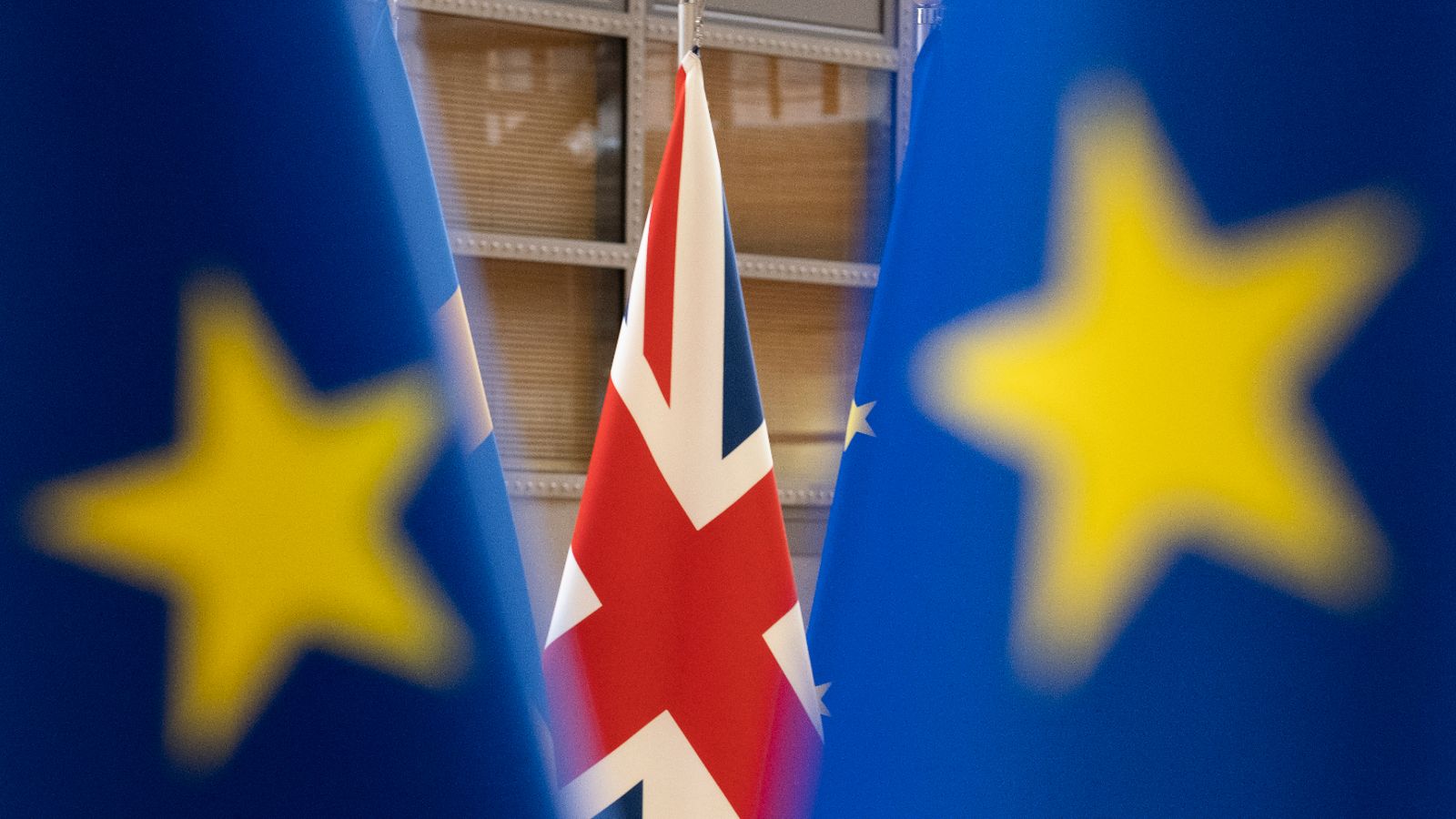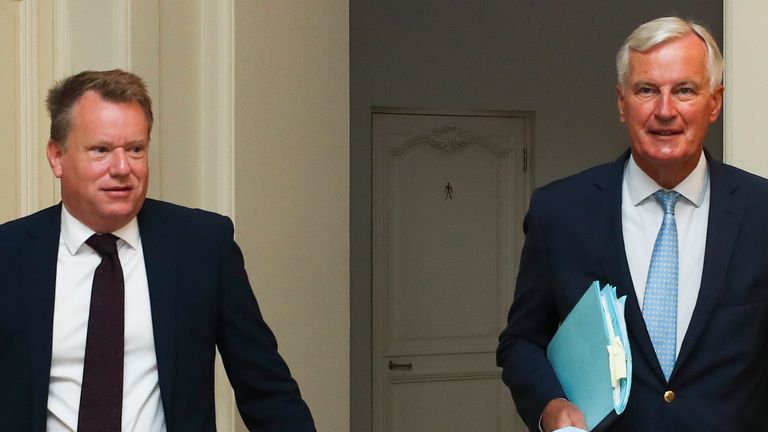We are finally at the end game of Brexit.
Four and a half years since the referendum, in the next few days the UK and EU will have to decide whether we exit our relationship with the 27-strong bloc with a trade deal or without one.
When Prime Minister Boris Johnson and European Commission President Ursula von der Leyen speak on Monday evening it will be to see whether, since their phone call on Saturday evening, there has been any progress in breaking the deadlock and whether there might be a “landing zone” for a deal.
It is undoubtedly a significant call in the final stages of talks, but not necessarily the make-or-break moment, according to officials on both sides; that could come later in the week when EU leaders meet at the European Council on Thursday.
This summit marks the effective deadline for a Brexit deal.
One official tells me this is the summit where a deal will be sealed amongst EU leaders or, if no progress has been made, the moment when Brussels activates no-deal measures. Either way, by the end of this week we should have an idea of Brexit’s fate.
The UK side tell me there are “still significant gaps to bridge”. The EU side say there has been some progress in the past 24 hours on fisheries, but competition rules are still the main sticking point.
It doesn’t come as much surprise. “Level playing field” rules – a trade policy term for common rules and standards to prevent businesses in different countries gaining competitive advantages over those operations in other countries – has been the most intractable point of conflict throughout the talks, and still is.
The EU has been clear all along: preferential access to its 27-strong internal market depends on the UK agreeing to EU rules on competition, state aid, labour and environmental standards.
For Brussels, making sure the UK cannot undercut the bloc after it has left the EU is its strongest red line.
The UK argues the very essence of Brexit means that London should be able to set its own rules rather than remain tied to Brussels’ regulatory orbit.
For the British side, determining their own rules is the core point of sovereignty.
The UK’s compromise would be to agree with the EU for the non-regression of existing standards. But what Mr Johnson won’t agree is to take EU rules forever. The EU side wants detailed, enforceable commitments on future policies not just existing ones. It is a very hard circle to square.
Meanwhile, the government’s intention to press on with with two bills – the Internal Market Bill and the Finance Bill – that violate the Brexit treaty agreed between Mr Johnson and EU leaders last year is also a source of tension.
:: Subscribe to Sophy Ridge on Sunday on Apple Podcasts, Google Podcasts, Spotify, Spreaker
European Council president Charles Michel warned on Friday a trade deal would be impossible if the Withdrawal Agreement is not upheld.
Ministers in London point out that these bills are going through the process and not yet set in law. Clauses can be dropped if a deal is reached. But it is all, as one senior minister described it to me, “high stakes stuff”.
What might a no-deal look like?
On Sunday night, Twitter account @mi6rouge published a leaked document from the Cabinet Office setting out “reasonable worst case scenario planning assumptions” for the end of the transition period.
The 34-page document is described as one which provides a “challenging manifestation of risk in question” but does not provide “an extreme or absolute worst case scenario”.
But what it does do is give us an idea of what might happen if a deal isn’t agreed.
On medicines, flow rates could fall to “60-80% of current levels with the majority of the disruption occurring within the first three months after the end of the transition period”.
Food prices could go up and we might experience reduced availability especially in certain fresh products but not overall food shortages.
The document warns that low income groups “will be disproportionately affected by any price rises in food and fuel”, while border delays could affect local fuel supplies – although there will not be a wider national level oil shortage.
There could also be delays at the borders, with 40-70% of trucks travelling to the EU perhaps not ready for new border controls.
On fisheries, UK and EU fishermen could clash over lost access to historic fishing grounds and there could be an uplift in illegal fishing. Border delays could have a severe impact on some businesses, such as those exporting fresh or live products such as crab and scallops.
There is also a warning in the planning document about “protests and counter protests” across the UK that “may absorb significant amounts of policy resources and a possible rise in public disorder and community tensions”. A spokesman said the government doesn’t comment on leaked documents.
What we will find out in the coming days is whether it will be a Canada-style free trade deal or a no-deal exit from the EU.
Whichever outcome it is, it’s a very long way from a referendum in which 16.1m people voted to remain in the EU versus 17.4m who wanted to leave.
A result that pointed to a ‘soft’ Brexit that would incorporate the wishes of both sides has ended up in the balance of hard Brexit or no trade deal after the middle ground disappeared in a bitter and polemical political war.
The prime minister knows he has the support of his cabinet and the Conservative party to go for no-deal.
He knows too that such a decision carries with it the risk of huge short-term disruption and economic damage.
Official forecasts say no-deal will cost the UK economy £40bn next year. Mr Johnson led Vote Leave to victory in 2016, now he has to finally decide the terms by which the UK finally leaves.
No-deal unthinkable once, Mr Johnson won the political space to make it a real option. This week we’ll find out if he’s really prepared to press that button.







